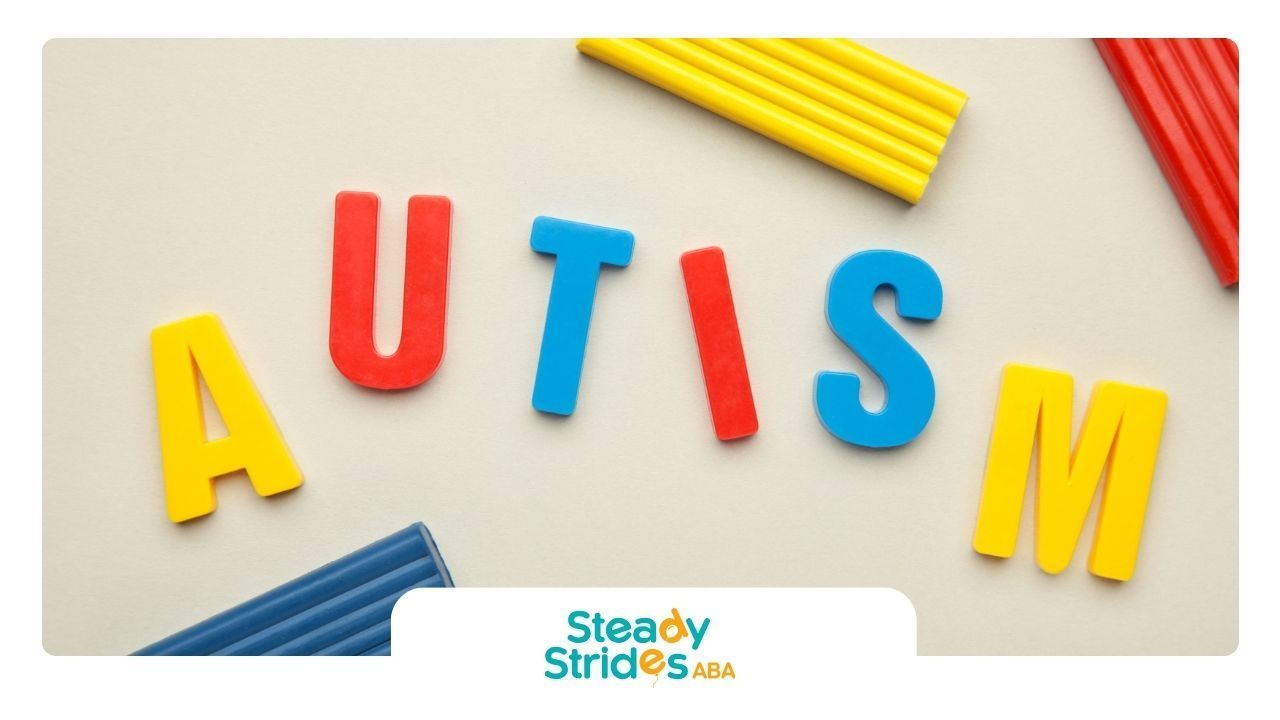Love, dating, and romantic relationships can be challenging for anyone. Add autism into the mix, and things might get a little bit more challenging. For people with autism spectrum disorder (ASD), navigating romantic relationships presents unique challenges. Autism spectrum disorder certainly adds its own twist to the world of love.
Whether an autistic person has never been in a relationship before or a neurotypical (non-autistic) person has never dated someone on the spectrum, there might be a bit of an adjustment period as both partners learn the ropes. This leads to the question "What Percentage of Autistic Adults are Married?"
Understanding autism spectrum disorder in adults is crucial to better comprehending the challenges faced by autistic individuals in romantic relationships. Misconceptions about autistic adults and marriage can further complicate the situation, leading to a lack of understanding and support from the general population.
In this blog, we will explore the reality of marriage among autistic adults, the challenges they may face, and strategies for building successful relationships. We will also delve into the statistics surrounding marriage rates and divorce rates among autistic individuals, shedding light on the unique dynamics within these relationships.
Understanding Autism Spectrum Disorder in Adults
Autism spectrum disorder (ASD) is a neurodevelopmental disorder that affects individuals across their lifespan. While often diagnosed in childhood, many individuals may not receive a diagnosis until adulthood, especially those with Asperger's syndrome.
Autism spectrum disorder, including Asperger's, is characterized by challenges in social communication and interaction, as well as restricted and repetitive patterns of behavior, interests, or activities. Understanding the diagnostic criteria for ASD in adults is crucial in providing appropriate support and resources for individuals on the spectrum.
It is important to understand that autism is a spectrum, meaning individuals can experience various abilities and challenges. Autism can impact an individual's mental health and their ability to navigate various aspects of adult life, including relationships and marriage.
The Spectrum and How It Influences Relationships
The autism spectrum influences relationships in unique ways. Individuals on the spectrum may struggle with social cues, making it challenging to navigate romantic relationships. They may have a harder time picking up on nonverbal cues such as body language and facial expressions, which can impact their ability to understand their partner's emotions or intentions. This can lead to misunderstandings and miscommunication in relationships.
Additionally, the differences in social interaction styles between autistic individuals and neurotypical people can create challenges. Neurotypical partners may expect certain social behaviors or responses that autistic individuals may not naturally exhibit. Understanding and accommodating these differences is crucial for building and maintaining successful relationships with autistic partners.
Misconceptions About Autistic Adults and Marriage
There are many misconceptions surrounding autistic adults and marriage. One common misconception is that autistic individuals are incapable of having romantic relationships or getting married. This misconception stems from a lack of understanding of autism and its impact on social interactions. In reality, autistic adults can and do form meaningful and loving relationships, and can even have hobbies that help them connect with others.
Another misconception is that autistic individuals lack the necessary traits for a successful partnership. While autistic individuals may have unique challenges and differences in their communication and social skills, they also possess strengths and qualities that can contribute to a successful relationship. It is important to dispel these misconceptions and foster a more inclusive and accepting view of autistic adults' ability to have fulfilling marriages in their daily lives.
It is also important to recognize that communication can be a challenge for autistic individuals and their partners, and it may not go perfectly every single time. Both partners need to be understanding and willing to work on their communication skills together.
The Reality of Marriage Among Autistic Adults
The reality of marriage among autistic adults is a nuanced one. While autistic individuals can and do get married, the marriage rates among autistic adults are lower compared to the general population.
What percentage of autistic adults are in relationships? Research shows that 32% of autistic adults have a romantic partner, highlighting the importance of considering romantic relationships in transitional plans for young people on the spectrum from childhood to adulthood.
This can be attributed to the unique challenges faced by individuals on the spectrum in forming and maintaining romantic relationships. It is essential to note that lower marriage rates do not indicate a lack of desire for companionship or love among autistic individuals. Many autistic adults have successful and fulfilling romantic relationships, even if marriage may not be the ultimate goal for everyone.
What Percentage of Autistic Adults are Married?
According to a study done by Toronto's Redpath Centre, only 9 percent of people with autism were married. This contrasts with the statistics of the general population where about 50 percent of adults are married.
It is important to note that this statistic may not be representative of the entire autistic population, as autism is a spectrum condition and people experience it in many different ways. Some autistic people may be very interested in romantic relationships, while others may not be.
How Does Autism Affect Marriage?
Autism can affect marriage in various ways. Communication skills play a significant role in the dynamics of a marital relationship. Autistic individuals may struggle with understanding nonverbal cues, expressing emotions, or engaging in reciprocal conversations.
These communication challenges can create misunderstandings and difficulties in expressing needs and desires within the marriage. Sensory issues are another aspect that can impact married life for autistic individuals. They may have sensitivities to certain sounds, textures, or smells, which can lead to discomfort or stress in everyday activities.
Daily routines and predictability are crucial for many autistic individuals, and any disruptions or changes can cause distress. Establishing emotional connections and intimacy can also pose challenges, as autistic individuals may have difficulty expressing affection or understanding their partner's emotions.
Understanding these challenges and finding strategies to navigate them is essential for a successful marriage involving an autistic partner.
What Is The Divorce Rate For Autism?
The autism divorce rate is still being studied, and there is limited research specifically focused on this topic. However, some studies suggest that the divorce rate among autistic individuals may be slightly higher compared to the general population.
The unique challenges and differences in communication and social interactions experienced by autistic individuals can contribute to marital difficulties. The impact of these challenges on the emotional and relational dynamics within the marriage can increase the likelihood of divorce.
It is important to note that divorce rates can vary among individuals on the spectrum, and not all marriages involving autistic individuals end in divorce. Successful marriages involving autistic individuals require understanding, support, and effective communication techniques to navigate the unique challenges posed by autism.
Challenges Faced by Autistic Adults in Relationships
Autistic adults face unique challenges in relationships that can impact the dynamics of their romantic partnerships. Communication barriers are one of the primary challenges, with difficulties in understanding and expressing emotions, picking up on social cues, and engaging in reciprocal conversations.
Sensory sensitivities can also pose challenges, as certain environments or stimuli may lead to sensory overload and discomfort. These challenges can create misunderstandings, stress, and difficulties in forming and maintaining romantic relationships. Understanding and addressing these challenges is crucial for building successful relationships with autistic individuals.
1. Communication Barriers
Communication barriers are a significant challenge faced by autistic individuals in relationships. Autistic individuals may struggle with understanding and interpreting nonverbal cues such as body language and facial expressions, which are essential for effective communication.
This can lead to difficulties in understanding their partner's emotions or intentions, resulting in misunderstandings and miscommunication. Additionally, small talk and casual conversation may be challenging for autistic individuals, as it often involves navigating social norms and conventions that can be difficult to grasp.
These communication barriers can create frustration and make it harder to establish a strong emotional connection with their partner. Finding alternative means of communication and practicing active listening can help bridge the communication gap in relationships involving autistic individuals.
2. Sensory Issues and Social Misunderstandings
Sensory issues are a common challenge faced by autistic individuals in relationships. Autistic individuals may have sensitivities to certain sounds, textures, smells, or lights, which can lead to discomfort or sensory overload in various social situations.
This can make it challenging to participate in activities or environments that their neurotypical partner may find enjoyable. Social misunderstandings can also arise due to differences in social expectations and sensory sensitivities. Autistic individuals may struggle to understand or respond appropriately to social cues, leading to misunderstandings or misinterpretations.
It is important for partners to be understanding and accommodating of these sensory issues and work together to find ways to create a comfortable and inclusive environment for both individuals in the relationship.
3. Navigating Intimacy and Emotional Connections
Navigating intimacy and emotional connections can be challenging for autistic individuals in relationships. Autistic individuals may have difficulty expressing affection or understanding their partner's emotions, which can create barriers in forming deep emotional connections.
The subtle nuances of emotional expression and understanding may be harder for autistic individuals to grasp, leading to a potential disconnect in the emotional aspects of the relationship. However, it is important to note that autistic individuals can still experience and express love and affection in their own unique ways.
Building trust, open communication, and finding alternative means of expressing and understanding emotions can help navigate these challenges and foster intimacy and emotional connections in relationships involving autistic individuals.
Can Autistic Adults Have Successful Relationships?
Yes, they still can. However, building successful relationships with autistic individuals requires understanding, patience, and effective communication techniques. Mutual understanding and respect are crucial for navigating the unique challenges posed by autism in relationships.
Taking the time to learn and appreciate each other's perspectives, communication styles, and needs can lead to a stronger connection and healthier relationship. Communication techniques such as using clear and direct language, visual aids, and alternative means of communication can help bridge the communication gap and foster effective communication within the relationship.
Seeking support from therapists or relationship counselors who specialize in working with autistic individuals can also provide valuable guidance and strategies for building successful relationships.
Importance of Mutual Understanding and Respect
Mutual understanding and respect are essential for building and maintaining successful relationships involving autistic individuals. Neurotypical partners can benefit from learning about autism and understanding the unique challenges faced by their autistic partners.
This understanding can help foster empathy, patience, and acceptance in the relationship. Neurotypical partners need to respect their autistic partner's needs, communication preferences, and sensory sensitivities. Building a strong foundation of mutual understanding and respect, by learning about common autistic traits, creates a supportive and inclusive environment that allows both partners to thrive and grow in the relationship.
It is also important for neurotypical partners to avoid falling into a parent-child dynamic and instead find ways to spoil their partner, such as cooking a meal or running errands for them. Additionally, understanding and accommodating the unique strengths and qualities that autistic individuals bring to the relationship can cultivate a deeper appreciation and connection between partners.
Effective Communication Techniques for Couples
Effective communication is essential for any relationship, and this holds for marriages involving autistic adults. While autistic individuals may face challenges in understanding nonverbal cues and expressing their emotions, some techniques can improve communication between partners.
- Developing active listening skills is crucial, as it allows both partners to feel heard and understood. This involves maintaining eye contact, nodding to show engagement, and reflecting back on what the other person has said.
- Using clear and direct language can help avoid misunderstandings. Autistic adults may struggle with nuances and hidden meanings, so being explicit about thoughts and feelings can prevent miscommunication.
- Paying attention to body language and facial expressions can provide valuable information about someone's emotions. While autistic individuals may have difficulty interpreting these cues, learning to recognize and respond to them can enhance communication.
- Nonverbal cues such as gestures, touch, and proximity can also convey meaning. Partners need to understand and respect each other's preferences and sensitivities when it comes to physical contact.
Leveraging Strengths and Accommodating Weaknesses
In any relationship, some strengths and weaknesses need to be acknowledged and accommodated. This is especially true in marriages involving autistic adults, where certain autistic traits can both enhance and pose challenges to the relationship.
- Autistic individuals often have unique strengths, such as attention to detail, loyalty, and a different perspective on the world. These strengths can contribute positively to the relationship and should be recognized and appreciated by both partners.
- Accommodating weaknesses involves understanding and accepting the challenges that autistic traits may present in a marriage. This could include difficulties with communication, sensory sensitivities, and resistance to change. By acknowledging these weaknesses, both partners can work together to find strategies and solutions that support the relationship.
- Empathy plays a crucial role in accommodating weaknesses and building mutual understanding. Both partners should make an effort to understand and empathize with each other's experiences, perspectives, and needs. This can create a more supportive and harmonious relationship.
Conclusion
Marriage among autistic adults is a nuanced topic influenced by various factors. While misconceptions exist, the reality shows that autistic adults can have fulfilling marriages. Communication barriers and sensory issues pose challenges but can be overcome with understanding and effective communication techniques. Therapist support and leveraging strengths are vital for success.
Resources are available to aid in this journey. Autistic adults navigating relationships deserve empathy and respect. Intimacy struggles exist, but with patience and education, these barriers can be addressed. Independent living percentages vary, highlighting the need for tailored support and understanding in relationships.
While statistics paint a general picture, every child with autism is unique. At Steady Strides ABA, we understand the importance of early intervention and personalized support. Our compassionate therapists create individualized ABA therapy programs designed to unlock each child's potential and foster essential communication, social, and life skills.
We believe in empowering children with ASD to build meaningful relationships and thrive throughout their lives. Contact Steady Strides ABA today and see how we can help your child reach their full potential.
Frequently Asked Questions
Can autistic adults have fulfilling marriages?
Yes, autistic adults can have fulfilling marriages. While there may be unique challenges, with mutual understanding, effective communication, and accommodation of each other's needs, autistic adults can build successful and satisfying relationships.
How can therapists support autistic adults planning to get married?
Therapists can provide valuable support to autistic adults planning to get married by helping them develop essential communication skills, navigate the challenges of marriage preparation, and understand and manage their unique needs and traits within a romantic relationship.
What resources are available for autistic adults considering marriage?
There are various resources available for autistic adults considering marriage. These include support groups, counseling services, online forums, and books specifically tailored to the needs of individuals on the autism spectrum who are navigating romantic relationships.
Do autistic people struggle with intimacy?
Some autistic people may struggle with intimacy due to difficulties in communication and forming emotional connections. Sensory sensitivities can also impact their comfort levels with certain physical aspects of intimacy. However, with understanding, communication, and support, autistic individuals can form deep and meaningful connections with their partners.
What percentage of autistic adults live independently?
The percentage of autistic adults who live independently varies, as the autism spectrum is broad and diverse. While some autistic individuals may require more support in daily living, many are capable of living independently and navigating social situations with the right accommodations and support.












